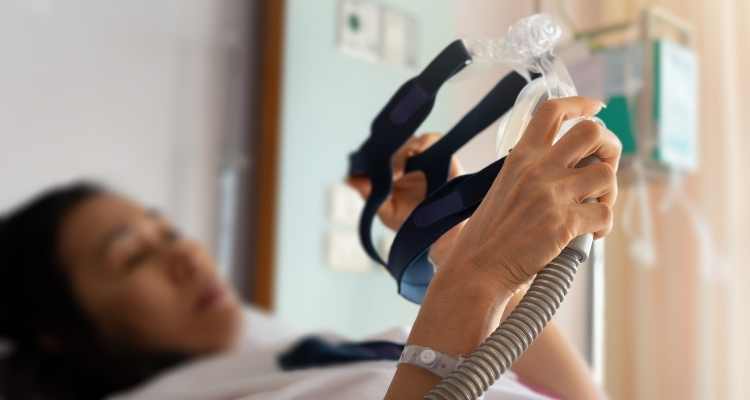Some people in Ashburn, Virginia struggle with sleep apnea. Sleep apnea is a medical condition in which breathing stops temporarily many times while you are sleeping. Different types of sleep apnea are central sleep apnea, obstructive sleep apnea, and complex sleep apnea syndrome. Obstructive sleep apnea occurs because of excess relaxation of the muscles in the throat that obstructs the flow of air. Central sleep apnea occurs when the brain fails to control the relaxation of the throat muscles.
Complex sleep apnea syndrome is a condition that has the features of both obstructive and central sleep apnea. This condition is also known as treatment-emergent central sleep apnea. Your risk of getting sleep apnea is high if you are obese, male, if you have a short neck, and if you smoke or drink alcohol. If you live in Ashburn, wellness experts offer some ways of managing sleep apnea, including lifestyle changes like weight loss and medical treatment. Treatment is individualized depending on the cause of your sleep apnea.
Why is Sleep Apnea Risky?
1. Sleep Apnea Can Cause Heart Diseases
When you stop breathing at night due to sleep apnea, the amount of oxygen in your bloodstream goes down. This can affect the function of vital organs in your body like the brain, kidneys, and the liver. To avoid such problems, your heart makes some adjustments like increasing the pressure with which it pumps blood.
This can put you at risk of developing hypertension. Other heart problems that can occur due to sleep apnea include irregular heartbeats which can be fatal. You may also develop atrial fibrillation when you have sleep apnea and this can cause a heart attack. Due to these complications of the cardiovascular system, you may be at high risk of sudden cardiac death.
2. Sleep Apnea Can Cause Complications During Surgery
Because sleep apnea affects your breathing, it can affect how your body reacts when you are put on general anesthesia. General anesthesia also reduces your breathing and the risk is worse if you normally have sleep apnea. The risk of complications when on general anesthesia also worsens when you lie on your back because the gravity further narrows your throat. Before surgery, ensure that your doctor is aware of your sleep apnea condition so that they can take the necessary precautions.
3. Sleep Apnea Causes Other Diseases
When you have sleep apnea, your risk of developing type 2 diabetes due to insulin resistance is higher than in people who don’t have sleep apnea. Sleep apnea also puts you at risk of developing non-alcoholic fatty liver disease. The metabolic syndrome which occurs when you have high blood pressure, high blood sugar, and high cholesterol levels is another complication of sleep apnea.
4. Sleep Apnea Causes Social Problems
Due to a lack of enough sleep during the night when you have sleep apnea, you may be drowsy and fatigued the following day. This makes you lose concentration and have poor performance at work or school. Sleep deprivation also makes you frustrated, irritable, and easily angered, which is not good for your mental health or relationships. Driving when you are drowsy can cause traffic accidents. When you snore loudly due to sleep apnea, you can keep your partner or children from getting enough sleep.
In summary, sleep apnea is a condition that causes breathing to stop periodically during the night. This condition is common in obese people, those who smoke and drink alcohol, in people with neurological conditions, and those with a short neck. Sleep apnea can cause complications like heart and liver diseases and complications during surgery. That is why it is so important to seek treatment for the condition.

